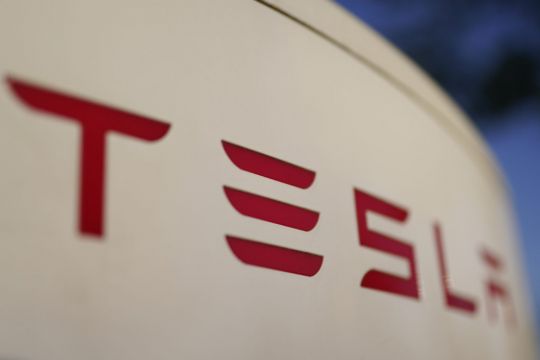Surging raw materials costs, made worse by Russia's invasion of Ukraine, could set back the dream of Tesla chief executive Elon Musk and other auto executives to roll out more affordable electric vehicles.
Rising prices of nickel, lithium and other materials threaten to slow and even temporarily reverse the long-term trend of falling costs of batteries, the most expensive part of EVs, hampering the broader adoption of the technology, said Gregory Miller, an analyst at industry forecaster Benchmark Mineral Intelligence.
That is on top of a supply chain already snarled by the Covid-19 pandemic and the global chip shortage.
"Rising raw material prices certainly have the potential to delay the timeline on cost parity between EV and ICE vehicles, which could hamper the wider adoption of EVs," Miller said, referring to internal-combustion engine vehicles that dominate the market.
This year could mark the first year-over-year increase in the average price of lithium-ion battery cells, he said.
The conflict in Ukraine has only raised the stakes, pushing nickel and aluminium prices to record highs on Monday on growing fears exports from leading producer Russia could be disrupted. Lithium prices also have increased, more than doubling since year-end, as supply fell short of rising demand.
Counterbalance?
Russia’s largest miner Nornickel produces around 20 per cent of the world’s supplies of high purity class 1 nickel, which is used in EV batteries, according to Benchmark Mineral Intelligence. Russia is also a large provider of aluminum, used in batteries.
To be sure, oil prices, which jumped to the highest levels since 2008 on Monday, could serve as a counterbalance, spurring greater interest in EVs after years of growing demand for gas-guzzling sport utility vehicles and pickup trucks.
Rising EV prices - marked by hikes over the past year by Tesla and startup Rivian Automotive - matter because mainstream consumers are not going to pay a massive premium for a technology that many do not yet fully embrace.
The average EV sold for almost $63,000 (€57,800) in January in the United States, about 35 per cent higher than the overall industry average for all vehicles of just over $46,000, according to research firm Cox Automotive.
While consumers worry less now about being stranded without power on the roadside, price remains a major concern, according to a Cox survey.
Slower EV adoption
"Anything that adds to the cost will impede EV adoption," Cox analyst Michelle Krebs said.
EVs made up about nine per cent of total global vehicle sales last year according to the International Energy Agency, and consulting firm AlixPartners expects that share to hit about 24 per cent by 2030.
More than half of consumers are not prepared to pay $500 extra upfront to buy an EV, despite lower operating costs, according to a 2021 study by OC&C Global Speedometer on consumers in the United States, China and other countries.
That could put vehicle makers in a bind if they want to attract mainstream buyers, rather than luxury customers to whom they currently cater.
Tesla raised the price for its least expensive Model 3 sedan by 18 per cent to $44,990 (€41,341) since December 2020, as supply chain woes weigh. Musk also said in January that Tesla is not developing a $25,000 car he promised during 2020 battery day, saying there are too many things on his plate.







